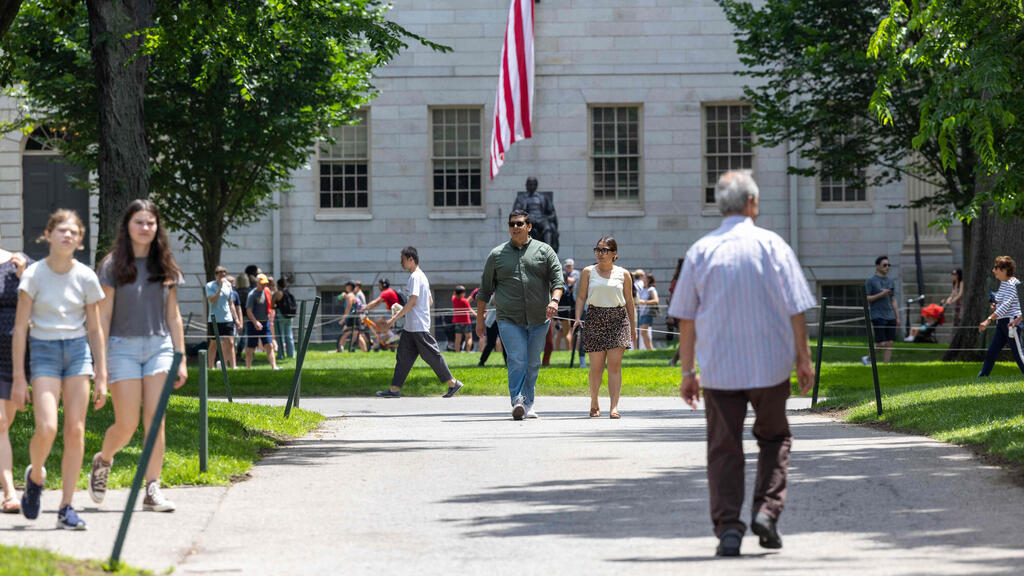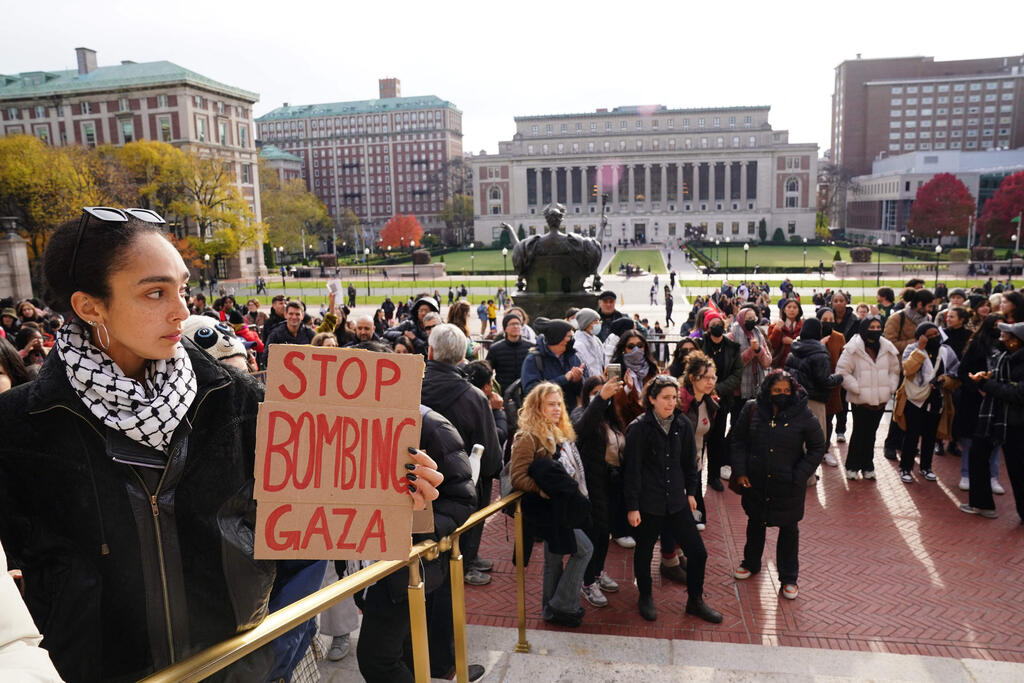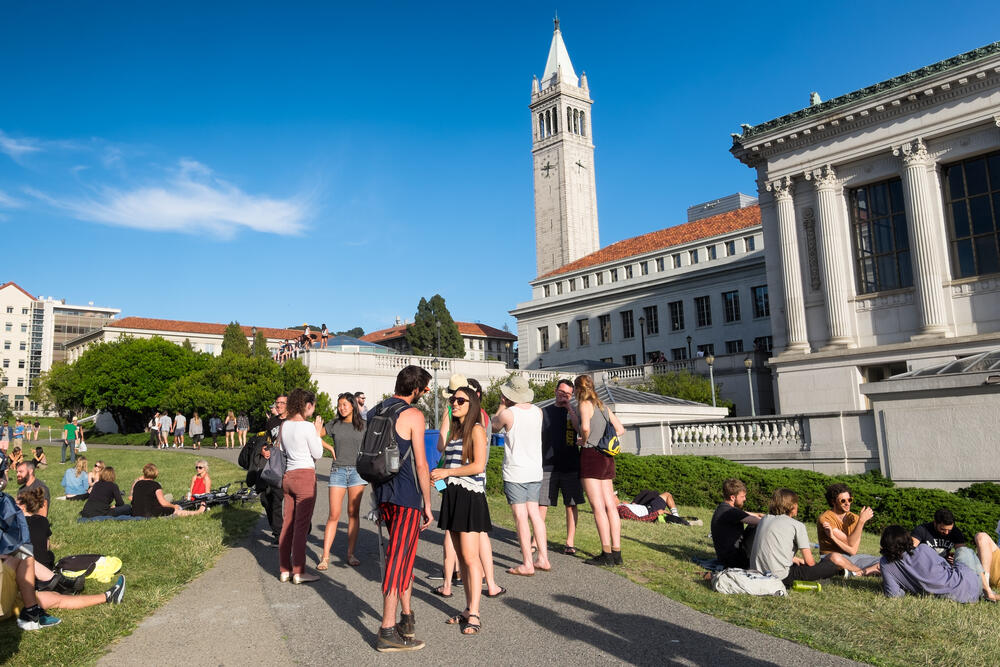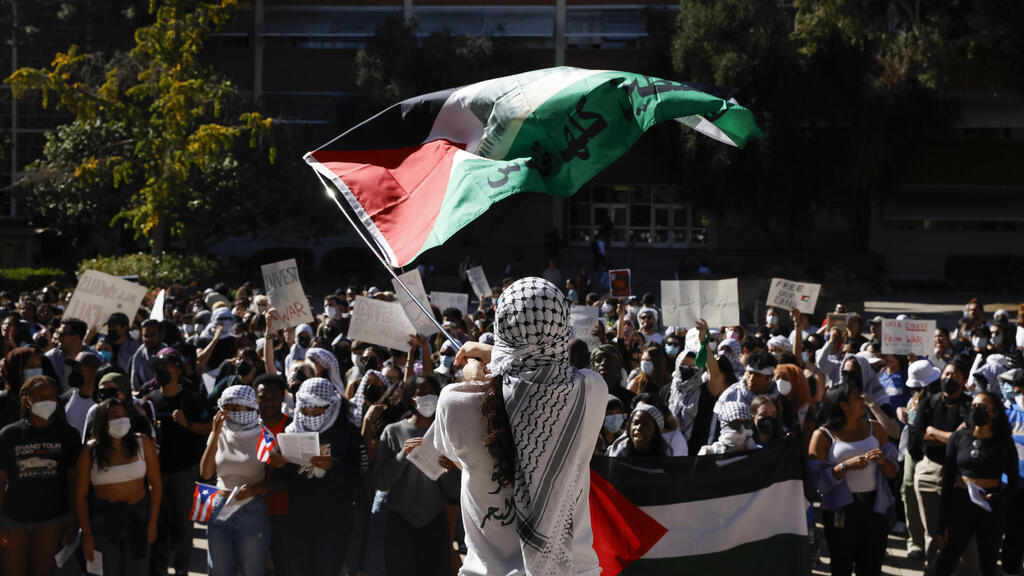After American universities including Harvard, MIT, and Penn made waves following their presidents’ appearance in a U.S. congressional hearing regarding their inaction in the face of growing antisemitism, a new report ranking American universities according to their level of antisemitism following Hamas’ October 7 attack show that two of these institutes do not appear at the top of the list.
More stories:
Colombia, UCLA, New York University (NYU), University of Michigan-Ann Arbor and UC Berkeley also rank high on the list, while the University of Florida, Duke, Brandeis, Tulane and California Polytechnic (Cal Poly) have been ranked among the friendliest for Jewish students.
Despite the noticeable increase in antisemitism across U.S. campuses in general, the study’s researchers from Brandeis University were surprised at the gap seen between the various institutes.
“The universities that had been in the headlines are not necessarily representative of what’s going on across the board,” the researchers said. “If you read newspapers, you would think that every single campus in the country is on fire. But there are some campuses, even campuses that had serious incidents, where students don’t feel the level of harassment and being targeted that they do at other campuses.”
For example, in the 12 American academic institutions with the highest reported incidents of antisemitism, 85% of Jewish students reported they felt hostility toward Jews, and 94% reported hostilities against Israel.
In contrast, on campuses with the lowest reported incidents, only 49% of Jewish students feel hostility toward Jews, and 63% toward Israel. One-third of students in institutions with the highest antisemitism rates feel hostility toward Israel from faculty members, compared to around 80% from other students.
In the most problematic institutions, 30% of students personally blame the actions of the Israeli government, compared to 9% in more friendly institutions. Jewish students who feel threatened report concerns about left-leaning students, with a minority expressing concerns about the right-wing side.
While 97% of Jewish students in the survey view Israel positively, only 56% view the Israeli government positively, indicating a divide between diaspora Jewry and the state, which began with the advent of the proposed judicial overhaul.
However, some of the data also provide a proportion for the phenomenon of antisemitism on campus. Less than 2% of students experienced a physical antisemitic attack, and that figure is relatively similar in all universities in the study.
Regardless of the campus, only 15% of respondents reported that concerns about antisemitism “often” affected their daily lives, although 9% reported that these concerns “always” affected their daily lives.
The study surveyed over 2,000 undergraduate students in 51 academic institutions across the United States regarding the impact of Hamas’ attack on October 7 on antisemitic sentiment on campus. They included questions about hate-crime incidents involving physical and verbal violence, property damage, graffiti, harassment from faculty and classmates, cyberbullying, and criticism related to classic anti-Jewish stereotypes or actions of the Israeli government.
The results were divided into four groups, ranging from "highest level of antisemitism" to “lowest level of antisemitism."
4 View gallery


Students on the campus of Harvard University
(Photo: Scott Eisen / GETTY IMAGES NORTH AMERICA / AFP)
However, the Gaza war also affects the quality of academia. Another study by George Washington University and the University of Maryland shows that 82% of Middle East researchers in American academia exercise self-censorship regarding the Israel-Hamas war – both in their personal lives and in their academic research.
Some 81% of those academics censor themselves regarding criticism of Israel, whie only 11% do so when talking about the Palestinians, and 2% about U.S. policy. Some 60% of respondents said this was due to concerns about non-compliance with campus culture and its impact on students; 53% cited concerns about external pressure from advocacy groups; 40% were concerned about the implications of academic administrators, and 19% thought it could affect institutional fundraising.
The study warned against the "gagging" and "cancel culture" phenomena that have been eroding academia, especially since the beginning of the war in Gaza. According to the researchers, the main motive behind self-censorship is fear, not necessarily sensitivity or "political correctness."
“There are many who self-censor because they got advice from senior colleagues or from administrators not to say anything that might be interpreted offensively by people, and it wouldn't be good for their careers, particularly assistant professors and graduate students,” they said.
“So that's not exactly self-censorship because you're sensitive. It's more worried about the consequences. We had a lot of colleagues who said they were not invited when the university held events on their very issue of expertise because they were worried that their views may not conform to what is needed on campus.”
This was also the case of Professor Dan Kalb, a 64-year-old environmental and climate change expert who was supposed to come in as a guest lecturer for an environmental policy course at the University of California, Berkeley, as he does every year.
This time, he received a letter from the professor who supervised the course at the last minute, telling him not to bother coming. It seems that in the days leading up to the course, students scoured Kalb's social media posts and discovered that he promotes "pro-Israel propaganda."
In a petition signed by more than 30 students, they claim Israel is committing environmental crimes that forever chang[ed] the ecology of a once flourishing community and landscape." The petition accuses Kalb of playing an “active role in retweeting and spreading pro-Israeli propaganda, which often equates pro-Palestinian voices as 'antisemitic.'"
Kalb, a member of the Oakland City Council and a prominent figure in the local Jewish community, said the letter was nonsensical. According to him, the subject of Israel has never been discussed in his class, and his lecture is supposed to provide students with practical learning and exposure to professionals in the field. The University of Berkeley said in a statement that the incident "is not consistent with the university's values," and that the matter is now under administrative review.






